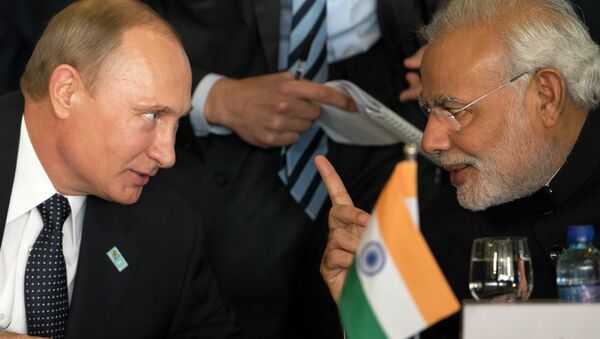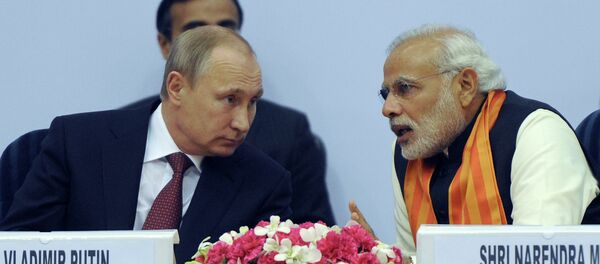NEW DELHI (Sputnik) – Former Latvian President Vaira Vike-Freiberga, who is currently on a visit in India, has spoken in favour of Indian Prime Minister Narendra Modi's involvement in talks aimed at resolving the Ukrainian crisis.
"Prime Minister Modi wants to spend sleepless nights sitting and trying to negotiate with [Russian] President [Vladimir] Putin [on Ukrainian reconciliation]. I think his presence will be welcome if he can get some results," Vike-Freiberga told Sputnik on Tuesday.
Latvia's former leader added that differences in narrative on Ukraine, which exist not only between Russia and the West, but also among the Americans and Europeans, are complicating the reconciliation process.
Vaira Vike-Freiberga has delivered a keynote lecture on the Ukrainian crisis, attended by former Indian ambassadors, envoys from Slovenia, Lithuania, Latvia, Germany and the European Union.
Since then, a ceasefire was twice agreed between the two sides: at a meeting of the Contact Group on Ukraine in September, attended by representatives from Russia and the Organization for Security and Co-operation in Europe (OSCE) and following talks between the leaders of Russia, Germany, France and Ukraine on February 12. Both of the agreements were signed in the Belarusian capital, Minsk.
The first ceasefire failed to hold and violence in southeastern Ukraine intensified at the start of 2015. The most recent truce has been generally holding, according to OSCE, which has reported, however, that fighting continues in some parts of Ukraine's eastern Donetsk region.
The West has been accusing Russia of supporting independence fighters in Ukraine – claims that have not been backed with any factual evidence and have been repeatedly denied by Moscow, which has been actively involved in the Ukraine reconciliation process and has been actively advocating a diplomatic solution to the Ukrainian crisis.


